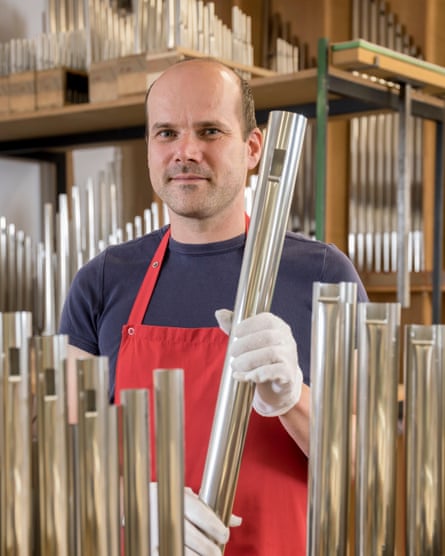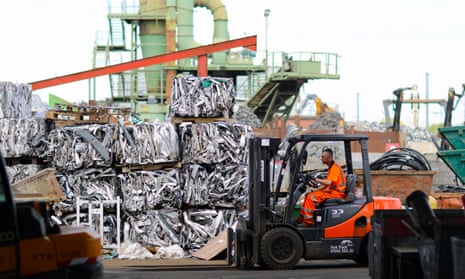Repairing vintage cars, learning about metal recycling or studying for advanced accountancy exams are some of the new apprenticeships on offer under the government’s new training regime.
A drive to widen the appeal of apprenticeships has led to the creation of hundreds of new courses. There are still plenty of traditional apprenticeships on offer such as engineering, building and hairdressing. On top of these has come a flood of newly created apprenticeships designed for a changing world.
Fancy learning the art of paper making or how to be a live event rigger setting up the lighting and sound systems at gigs? How about a career in nuclear health monitoring or installing smart meters? Training is available on the job for these and many other careers.
Today’s apprenticeships also encompass professions such as nursing, teaching and senior management, which were once accessible only through advanced study. New degree-level apprenticeships have become available in many areas. Learning while earning means trainees can avoid getting saddled with hefty student debts while still getting a shot at a professional career.
For instance, a three-year level 7 accountancy apprenticeship, equivalent to a master’s degree, can lead to chartered accountant status.
Under a shake-up in the way apprenticeships are created, employers band together and work with training providers to design the courses their industries need. They then seek approval from the Institute for Apprenticeships.
Some 400 apprenticeships have been launched over the past two years under this system. Many are reworked versions of existing apprenticeships. But some are completely new.
The UK’s brewers have worked together to create an 18-month brewing apprenticeship offering level 4 training, equivalent to just below degree level. Brigid Simmonds, chief executive of the British Beer and Pub Association, which helped design the course, says large and small brewers worked together for a year to create the apprenticeship. The process was chaired by brewer Brewhouse & Kitchen with contributions from training provider HIT.
With some 2,000 breweries in the UK, there is strong demand for qualified brewers. Simmonds believes there will be up to 150 apprentices taking the course at any one time. Apprentices learn on the job at a brewery and take time out for training. Those studying with HIT attend six two-day residential workshops run by breweries at the University of Nottingham, which has an international centre for brewing science.
Apprentices can expect to progress to a master brewer’s role. Simmonds says: “This is a serious and challenging degree, as brewing is a technical process, so candidates will have an interest in science. It is the quality of the product that drives the uniqueness of British beer and its reputation around the world – we are unique in offering draft ale. Brewing is a serious business and it requires real expertise.”
Another freshly-minted apprenticeship is in metal recycling, which was created by the British Metals Recycling Association and some of the industry’s biggest and most respected companies.

Liam Murray, 25, one of the first wave of apprentices on this new course, was already working at recycling firm Sackers when managers approached him to take the 18-month, level 1 apprenticeship. He has taken the opportunity to expand his knowledge of recycling, learn more about the health and safety aspects of the job and to get a qualification in English and maths. “There’s so much from the course that I’m putting into practice at work,” he says. “I go up to Nuneaton in Warwickshire to study twice a month. Sackers pays me to go and stay in hotels.” He takes two courses at Met Academy in Nuneaton, one for waste and metal recycling and the other for maths and English.
“The apprenticeship has made me look at other things that I could do, such as studying more health and safety courses to get more qualified. I’m also learning about general waste recycling. That’s interesting and I might eventually move into the waste side of things,” he says.
With dozens of fresh apprenticeships coming on stream, today’s candidates can choose careers in burgeoning areas of industry where demand is expected to soar in the future.
Not everyone is cut out for a conventional career. And there is no better route into an off-beat profession than on-the-job training through an apprenticeship. From repairing church organs and designing sails for racing yachts to bespoke saddle making and golf greenkeeping, apprenticeships can open doors to some seriously niche and unexpected careers.
Tom Sherreard is a former professional golfer who wanted to keep up his association with the game, so he decided to take an apprenticeship in golf greenkeeping.
“I love the outdoors. I’ve been playing golf since I was about five and I don’t know anything else, to be honest,” he says. He took the newly-created level 2 apprenticeship in golf greenkeeping while working at the London Golf Club in Kent. He took on-the-job training at nearby Hadlow College.
“I’d have a guy from Hadlow College come once a month to check my progress and make sure I was doing what I had to. It was a two-year course, but I went through it in 14 months. At the end, you do a written exam and a practical exam and if you pass all of those then you are away.
“I am a level 2 qualified greenkeeper, I’ve got my certificate at home on the wall,” he says. The job involves general maintenance, setting up the golf course for play and includes everything from cutting the green, raking bunkers, cutting fairways, ensuring the health of the grass and putting holes in.
With more than 2,500 golf courses in Britain, job opportunities aren’t particularly difficult to come by.
Sail making is another niche area. Solo Sails Sailmakers in Penzance has employed three apprentice sailmakers over the years. The company’s owner, Andrew Wood, says the trainees learn about the entire process, from designing sails to cutting them out and putting them together. They learn how to use a computer-controlled cutting machine. But he struggles to find candidates for the apprenticeship. “It’s an unusual skill to go for. People think there might not be much future in sail making,” he says. Sailing has the reputation as an exclusive sport only for the rich, he says, which may put people off.
For those who fancy spending time at church, there is a good career to be had in organ building. This involves building and restoring pipe organs, which feature in hundreds of churches, cathedrals and public auditoriums. Organ builders also repair, maintain and tune existing organs. The Institute of British Organ Building has worked with the industry to create a new three-year, level 3 apprenticeship standard for the profession. Most organ building apprenticeships are run by employers and the newly-designed standard is yet to get off the ground. It involves working with materials such as wood, leather, tin and lead. Health and safety is a concern, as work is often done at height and there are issues with exposure to loud noises.
For more information, visit instituteforapprenticeships.org
